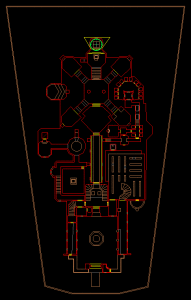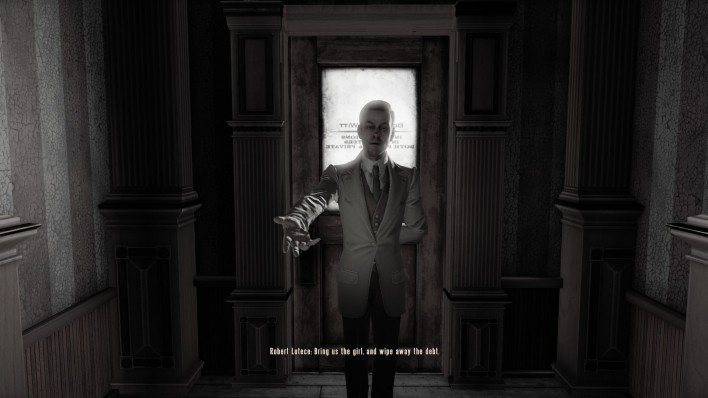We play games for a number of reasons. For some, there’s the allure of a good story. For others, its for power and glory and the virtual battle field. But for plenty, it’s an idea that they have when they start a game which quickly fades and results in players not finishing games (note: while that article does bring up that the definition of completion is dubious, I will comment that the first example, The Walking Dead S1E1, gives all achievements for just getting to the end; there is nothing but story achievements).
So how are players motivated or not to start and keep playing games? Are all motivations created equal? How does a player really feel like they are progressing? I feel there really are four categories which show a great tie between motivation and progress. None are really exclusive (and all frequently have some level of story), but they all present a different idea of what the player is trying to do that I feel can be a deeper connection beyond genre.
It is important going into this discussion to realize that motivation and progress in games always comes shaded by the feelings a player is bringing to the table more than other situations. After all, by the time the player starts to play the game, they have frequently already bought it on some premise. They enter the game (usually) wanting to play it for some reason and then the game has to just nurture that feeling or cause the player to develop a new one to keep going.
Implicit
Possibly the easiest to discuss, I categorize implicit motivations and progress as things that given or awarded by playing the game, but tend to have virtually no direct impact on the game. The simplest examples come down to strictly numerical guides like points being awarded or the number of the stage increasing. Points are probably more obvious as it can present a competitive motivation to supplement gameplay. I see stage numbers increasing as a motivation primarily in games like puzzle games and, to a lesser degree, platformers. In the end, players frequently want to solve the puzzles for that satisfaction, but seeing the stage number continue to increase helps to keep them feeling like they are moving on and “winning.”
Potentially less obvious areas where this can come up are in RPGs with money or levels. By themselves as numbers, they don’t actually do anything. They may give you more abilities in the game world which can tie into explorative motivations, but for some, the number going up is a feeling of progress and motivation. This is a similar aspect to collecting items in games where the completion number raising is its own reward and supplemental rewards are just bonuses. The 100%-ers frequently want the 100% for having it.
Motivation in this category is essentially free for a game. By presenting the presence of a number, it creates a motivation to make it go up. Progress just comes from it increasing. This puts most of the onus on the gameplay being fun by itself because this motivation is probably the weakest.

Explorative
In many games, you cannot go everywhere from the start. In fact, one could see the motivation of the original Doom as just trying to get to the exit with a lot of shooting needed to get there successfully. As you can see in the picture of the map, the levels were not simply walking in a straight line. In order to find secrets and keys, one had to explore a lot of the level which could be both interesting and challenging.
Metroidvania games change what it means to have a key at times, but can very much be seen as games where one wants to explore the environment to find the secrets and new areas. Progressing here is barred frequently by needing abilities that are unlocked from specific encounters which then expands the area of exploration.
Side effects of money or level in RPGs fall into this category too. Being able to buy what was needed to progress in something like Harvest Moon gives the player an additional feeling of progressing beyond having the money. In other RPGs including MMOs, becoming stronger allows you to proceed farther into the dungeons and see more or the world and story. The key to the door of progress here is your ability to survive. This also means that if progressing doesn’t unlock something new, it is merely numbers going up rather than anything more.
Integral
Integral progress and motivation refers to when, in a game, motivation and progress can outweigh gameplay for why a person is playing. I feel this is most prevalent when the narrative is front and center in a game which also means progress is just a natural consequence of the story unfolding. This makes the motivation and progress much more important but also makes mistakes much easier to make. Worse is the fact that, for this to work, you need the player to really connect with the motivation and feel the progress at some personal level. If the player’s only motivation is to “save the world” but they don’t actually feel like they are accomplishing that (or possibly that their character should be doing this), the motivation fails or gets in the way. But when it succeeds, the game can latch on to the player and give them an excellent experience that other motivations cannot come close to.

Personally, I feel a lot of the motivation can come from considering who you are motivating: is it the character in the game or the player who is playing? Generally, I feel this type of motivation really works better with a character versus a player. For example, the actual story motivation in games like Grand Theft Auto versus Saints Row and Just Cause vastly favor GTA because the player is playing as a character with their own personality that can be motivated. In Saints Row and Just Cause, the “character” the player is playing as really goes undefined to a great degree. This means that the story can provide some interest, but the gameplay really has to carry the entire progress along the narrative track.
Valve is amazingly good at getting away with not motivating the player but instead heaping on progress to make up for it. Consider the Half Life series. These are narrative driven games but generally fall into explorative motivations with heaps of story at certain points to really enhance the experience. Gordon Freeman has no motivation really past potentially surviving.
Bioshock Infinite is at the other end of the spectrum where the motivation is deeply personal for the character (and only becomes moreso). At the same time, there is implicit advancement from improving certain stats and explorative progress from seeing the world and experiencing everything it has to offer. For me, this is an amazing balance that creates a highly enjoyable game.
Creative
Creativity is the black sheep of motivations. At some level, it is a motivation that is completely tangential to the other three, but yet can be immensely satisfying for the correct people. Minecraft is the biggest example of this as the only way to have fun is to motivate yourself. But that motivation then translates into its own set of achievements which can be discussed and shown off online.

Minecraft and its (sometimes more sometimes less) clones aren’t the only games like this though. Dwarf Fortress is all about “making losing fun.” But before the player loses, they can have great adventures. Tim Denee has masterfully retold stories of his Bronzemurder and Oilfurnace forts to really show off how just creating for the fun of it can lead to rather amusing adventures even when the player does lose in the end.
Conclusion
Motivations in games really need to be embraced for a game to be successful. Genres may lend themselves to motivations, but in the end, progress is only continued for the player if they are motivated enough. Instead of just assuming that gameplay is enough to carry a game, the in game rewards and motivations should always be evaluated to ensure players not only will have fun, but players will really want to experience all of the game instead of just a small sampling.
